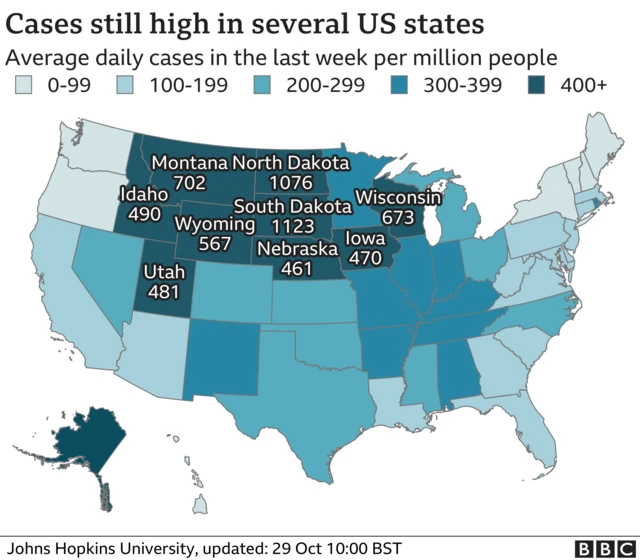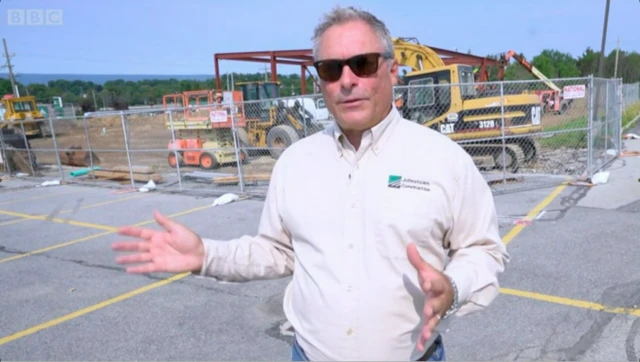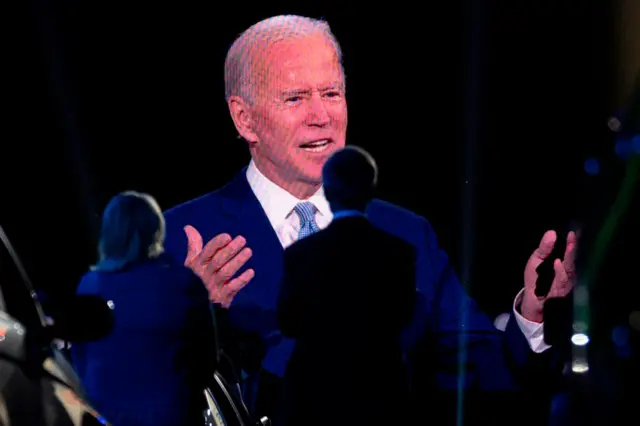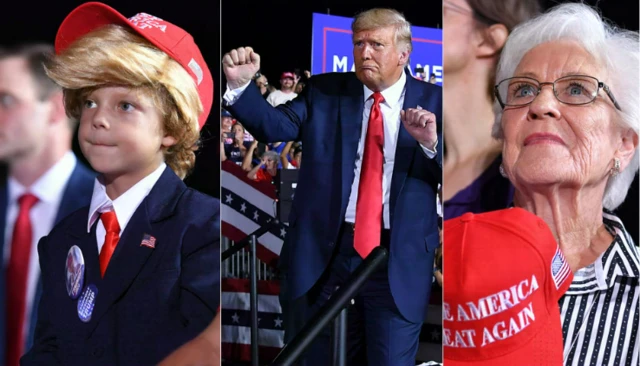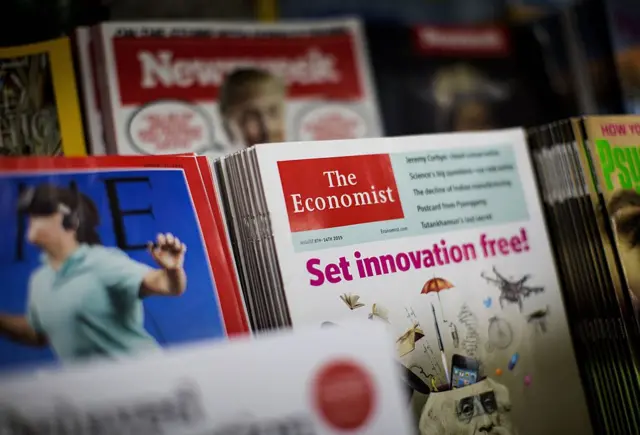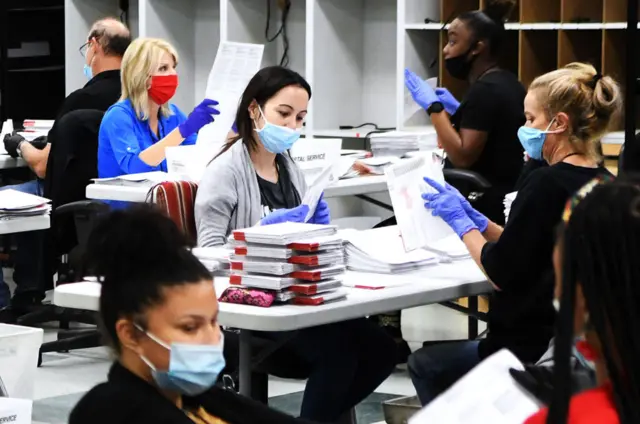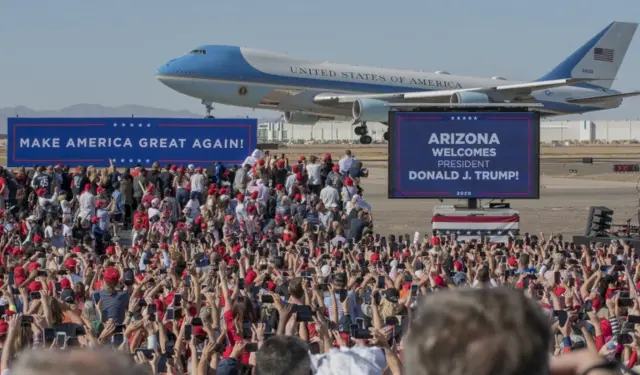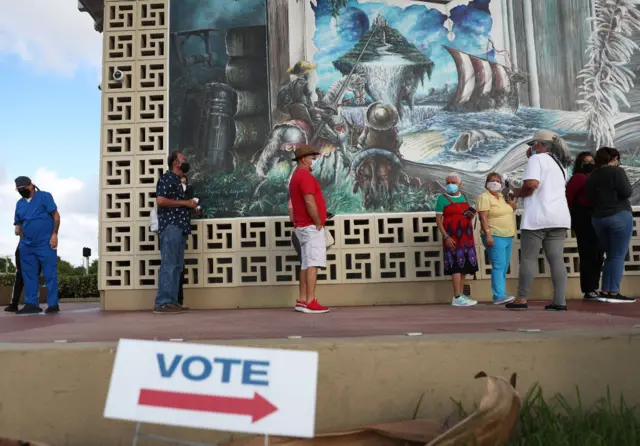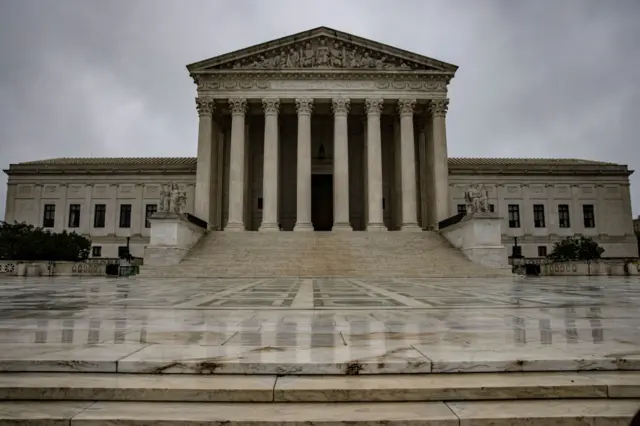Covid in the US: Latest numberspublished at 12:40 GMT 29 October 2020
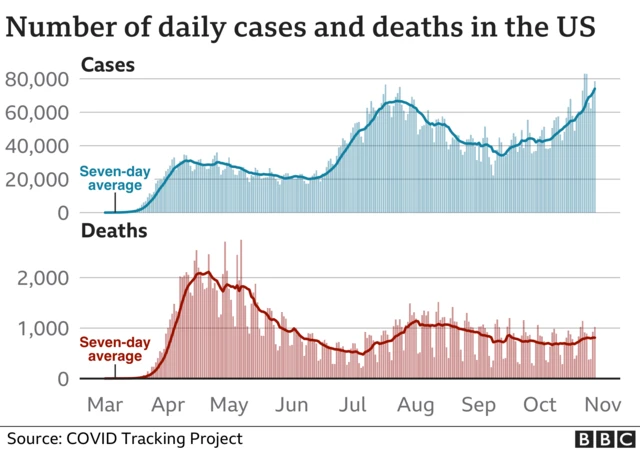
The coronavirus pandemic has transformed the US election - on Wednesday night, Trump and Biden again clashed over how the Covid-19 crisis should be handled.
The latest figures show the country is in the grip of a third wave of infections. More than 500,000 cases have been recorded in the past week, according to the Centres for Disease Control and Prevention, external. Deaths are also rising, though not to the same degree as they were in spring.
The map below shows that cases remain particularly high in the mid-west, including North Dakota, South Dakorta and Montana.
